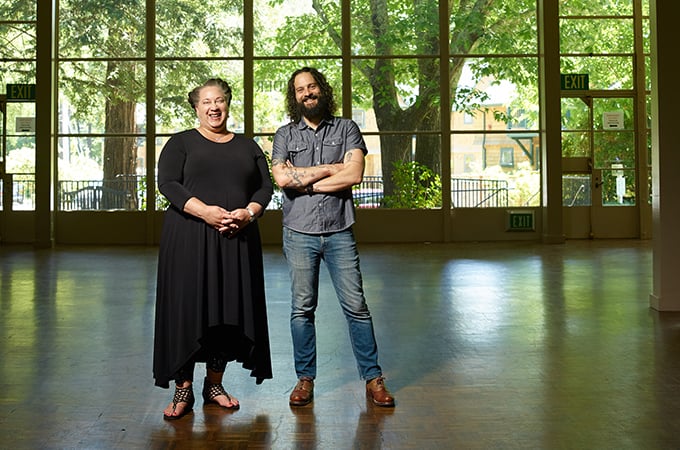During the Shaw Chaplaincy Institute for Spiritual Care and Compassionate Leadership (SCI) launch in April 2018, Dr. John Mihalik shared his unusual journey. He earned degrees in philosophy and bioethics, studied to become a Jesuit priest, and met his wife in nursing school before becoming a doctor. Making connections throughout his journey was as important as where he ended up, because, as he said, “It is through relationships that we encounter the sacred. Through being of service we are exposed to universal love, but not service in an abstract way.”
This is exactly the kind of work that SCI seeks to do—teaching people how to care about others, how to care more and care better. Thanks to the vision and financial support of Rev. John Shaw, SCI—a multicultural, interpersonal, and interfaith program, now part of the University of Redlands Graduate School of Theology—aspires to be an educational beacon, guiding and educating spiritual care leaders to engage the emotional, spiritual, physical, intellectual, and moral needs of those in their care.
For myself, this education and nurturing has been essential in my own growth and development as a clergyperson. When I graduated from San Francisco Theological Seminary in 2004, I was already working as a chaplain on the street in San Rafael with the Marin Interfaith Street Chaplaincy. I felt a deep and persistent calling to ministry with people who were living on the edges. At that time, I was 26 years old and woefully optimistic about the kinds of change that I, as one man, could create in the world. Within only a few years, I was exhausted, on the edge of burnout, and my optimism had transformed into a kind of dark cynicism.
I was overwhelmed by the suffering that I encountered every day. The crushing weight of an oppressive system on already hurting hearts only seemed to give way to unscalable walls and inaccessible byways that appeared to lead somehow to some unreachable emerald city of health and healing. I was lost in myself, overcome with sadness, anger, and guilt. It just seemed so unfair that I had a place that I called home, and these people with whom I spent so much time from day to day—these folks who I had come to call my friends—did not. Even more discouraging was witnessing how little other people seemed to care. I felt isolated. I was isolated.
Then, by some miraculous movement of the Divine, Rev. Laurie Garrett-Cobbina, Ph.D., showed up in my life. There is a saying that “when the student is ready, the teacher will arrive,” and I was ready. God knew I was ready.
Rev. Garrett-Cobbina asked me if I wanted to do more Clinical Pastoral Education (CPE), the flagship program of SCI. CPE is a reflective learning process in which we take a deep look at the care that we are providing to others in relationship to our personal history and theology. When I began that unit, I realized just how much I needed the support of an educator and peers in the midst of this ministry that I loved so much, but which seemed to be draining the life and joy out of me.
I completed three units nearly back to back because the process of self-reflection and group learning fed my soul and deepened my ministry; it made me more able to care, made my caring better and grew me in ways that I could never have grown by myself.
After 15 years working with people on the street, I left that ministry to enter this new one. Helping Rev. Garrett-Cobbina realize this vision of the Shaw Chaplaincy Institute has been a dream come true. I believe so very deeply in the work that we are doing together. Now, in my role as SCI program manager and ACPE Certified Educator candidate, I have the immense privilege of working with students through their own learning journey. I have the joy of witnessing students learning how to care more deeply about others and themselves, stretching and growing in ways they never knew were possible.
My colleague Rev. Donna Allen said that being a lifelong learner and working with SCI is like finding the fountain of youth: “At the center of my journey is the joy of learning. Doing soul care, social justice work, cultivating courage and curiosity in SCI learners is lock step with being a living witness to the transforming power of love—it means rolling up my sleeves to make the world a better place.”
I always used to have a difficult time articulating what exactly spiritual care is. The Shaw Chaplaincy Institute for Spiritual Care and Compassionate Leadership is helping me to better understand this elusive place of meeting between two or more people, where we see each other in mutuality. This place where something sacred and inexplicable shows up in ways beyond our comprehension.
Learn more about the Shaw Chaplaincy Institute for Spiritual Care and Compassionate Leadership at the University of Redlands’ Graduate School of Theology.






